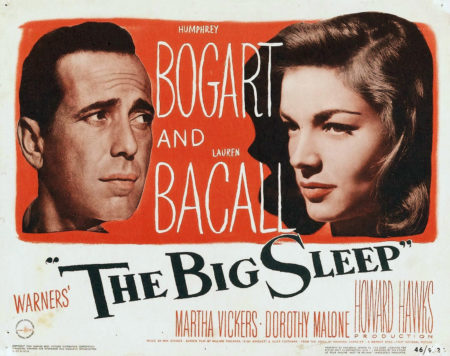Welcome to the first reading post of the new year! Follow along for some of the things I’ve been reading lately. Hopefully you find something of interest, and let me know what you’ve been reading lately!
Raymond Chandler – The Big Sleep
Chandler’s book is a classic detective novel – his first novel. In it, he introduced the character Philip Marlowe. For better are worse, these are pretty formulaic novels most people either like or don’t. Chandler’s book represents one of the better samples of the genre.
And so, if you like detective stories, you should read this one. If you don’t, you shouldn’t.
Alex McElroy – The Atmospherians
McElroy explores toxic masculinity through this little story on the formation and collapse of a cult. A pair of friends started one in order to ‘help’ men settle their issues with gender and masculinity.
Is it inventive? Yes! Was it a good idea? Yeah, sure. We probably need more books on the problems of masculinity, even novels. The cult concept introduces a certain moral complexity and prevents the novel from getting too preachy.
But does it work? Sort of. Not really. The cult leader characters are obnoxious, at best. And then men in the cult are kind of a disorganized grab-bag of problems. And the author doesn’t find the space or time to explore any of them in sufficient depth.
Anne Helen Petersen – Can’t Even
Petersen writes about millennial burnout: the feeling among young people that they’re constantly busy and that work colonizes their entire lives. Refreshingly, Petersen focuses on the deeper economic and ideological causes at work. She traces the history of corporate downsizing and the relentless pressure young people face to avoiding losing class status. Then there’s the pressure young people face from their parents – themselves Boomers who lived through the early era of corporate downsizing and union collapse – to do better than they did.
The critique hits the world of work the hardest. Petersen effectively points out many of the problems with the gig economy and how it cultivated a precariat class. Nor does she leave out the tech industry’s mission of job destruction.
One of the more striking aspects of all this is how millennials try to make sense of these phenomena. Many present stylized and idealized lives on social media. But, really, they’re falling behind. And the social media presentations create unfortunate pressure on their peers to keep up with a life few actually lead.
I found particularly compelling Petersen’s discussion of how some people ‘Live Action Role Play’ (LARP) their jobs. They continuously work to create the mere appearance of working, a performance that wears them down even when work does not. I think we see this, in particular, in systems where workers are under heavy surveillance.
Trump Collection, Part 3: Bob Woodward – Peril
OK, so this is the third in a collection of books on the Trump Administration.
In this third installment, I read the final book in a series by Bob Woodward. And Woodward’s book didn’t impress me at all. In his earlier books, Woodward pointed to Trump as a dangerously incompetent president. But not really one with any specific plan for ill deeds. That’s well enough on the mark. But in this one, Woodward loses the narrative. The book reads more like a dry, journalistic summary of some things that happened in 2020 and 2021. Or, to put it differently, like a couple hundred newspaper articles next to one another.
Readers can skip this one. For the best work on Trump, I’d tell readers to start with Michael Wolff’s series.
Tom Wolfe – Bonfire of the Vanities
Wolfe’s 1987 novel got rave reviews and lands on any number of ‘best 20th century novels’ list. For the most part, it lives up to the pressure. And despite being a very 1980s novel, it still strikes one as relevant.
The book’s about lots of things: race and class, urban politics, police procedure, Wall Street bond trading, and so on. But most of all it’s a book about New York in the 1980s, and specifically the Bronx in the 1980s. If a bit farcical, Wolfe captures all that very nicely. A bond trader (not exactly) kills someone in the Bronx, and (not exactly) goes to jail for it, and (not exactly) learns lessons along the way. A Bronx minister runs a (not exactly) revolutionary movement that (not exactly) uses all this to its advantage.
You get the idea. Go read it.
